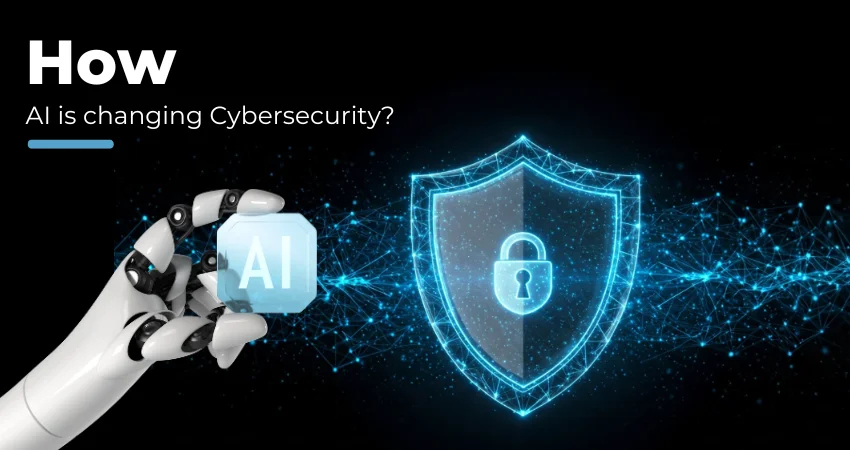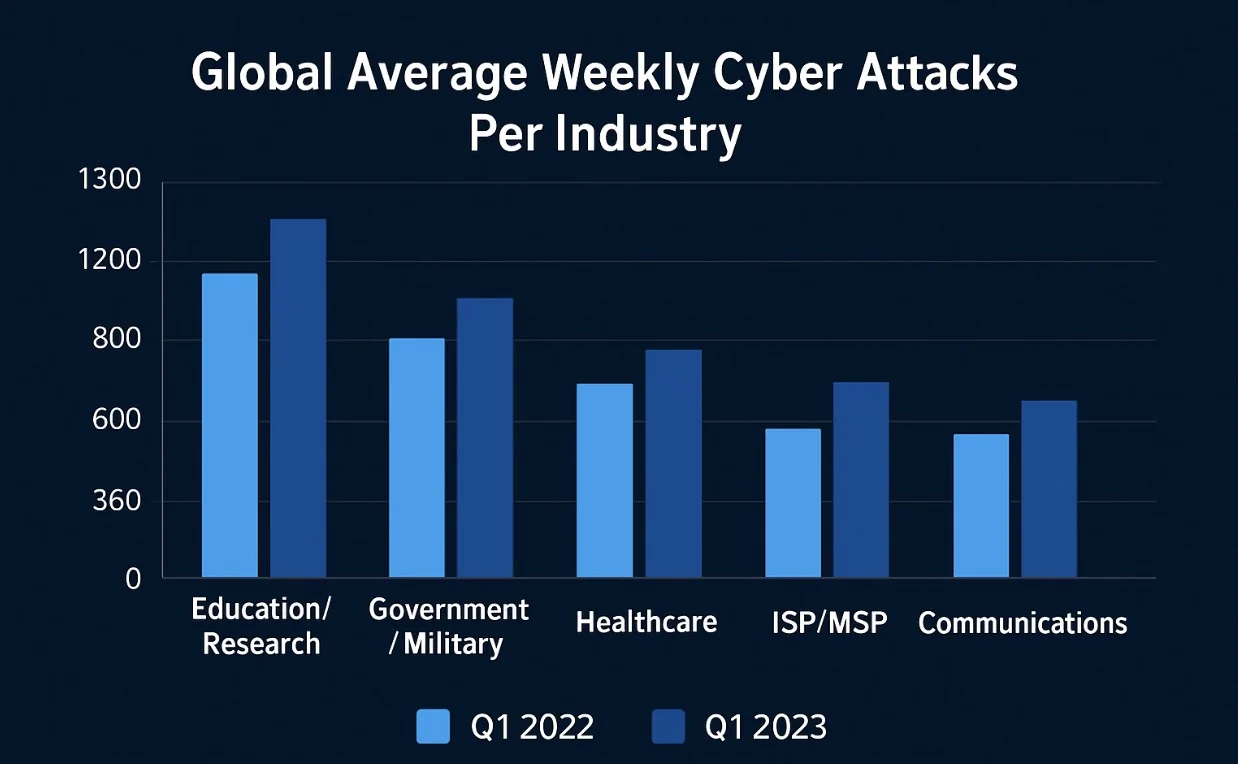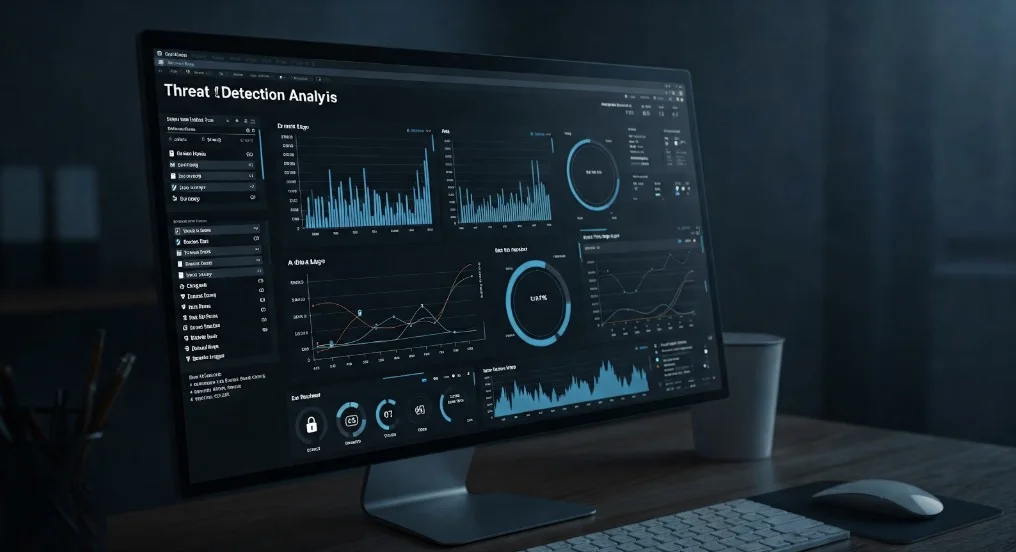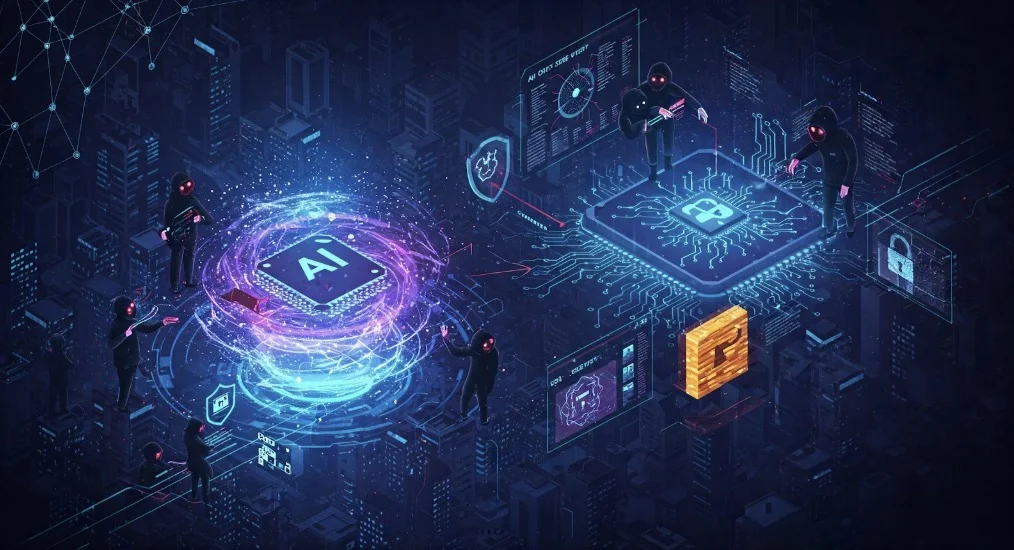How AI is Changing Cybersecurity

Introduction
Did you know that cyberattacks increased by 38% in 2023? As hackers get smarter, traditional security methods struggle to keep up. This is where artificial intelligence (AI) and machine learning (ML) come in. AI helps security teams detect threats faster, automate responses, and improve efficiency. Let’s explore how AI is transforming Security Operations (SecOps), real-world examples of its impact, and challenges we need to address.

Why AI is Needed in SecOps
Cybersecurity teams deal with thousands of alerts daily. Sorting through them manually is overwhelming, leading to missed threats. AI changes the game by filtering out noise, identifying real threats, and even predicting attacks before they happen. This allows organizations to stay ahead of hackers instead of always playing catch-up.
How AI and ML are Improving Cybersecurity
1. Smarter Threat Detection
AI analyzes vast amounts of security data to spot unusual activity that might indicate a cyberattack. Unlike traditional systems that follow fixed rules, AI continuously learns from new threats, making it more effective at detecting cyber risks.

2. Faster Incident Response
Time is everything in cybersecurity. AI-powered tools can automatically isolate infected systems, block malicious traffic, and alert security teams in real-time. This rapid response minimizes damage and allows IT teams to focus on serious threats.
3. Predicting Cyberattacks Before They Happen
By analyzing past attacks and trends, AI can forecast future threats. This proactive approach helps businesses strengthen security before an attack occurs rather than reacting after the damage is done.
4. Reducing False Alarms
Security teams often deal with false alerts, wasting valuable time. AI refines threat detection by filtering out unnecessary alerts, allowing security teams to focus on genuine threats.
Real-World Examples of AI in Action
- Stopping Phishing Attacks: AI analyzes emails and websites to detect phishing scams before employees fall for them.
- Protecting Devices: AI-powered security software, like CrowdStrike and Darktrace, helps detect and block malware before it spreads.
- Securing Cloud Data: AI monitors cloud systems for unauthorized access, keeping sensitive business data safe.
Challenges of Using AI in Cybersecurity
While AI is a powerful tool, it’s not perfect. Here are a few challenges:
- Hackers Are Using AI Too: Cybercriminals are leveraging AI to create smarter attacks, making cybersecurity a constant battle.
- Bias in AI Models: If AI is trained on biased data, it can make incorrect security decisions, missing threats or flagging harmless activity.
- Over-Reliance on AI: AI should assist security teams, not replace them. Human expertise is still needed to analyze complex threats.

The Future of AI in SecOps
AI in cybersecurity is evolving fast. Future advancements may include:
- More Transparent AI: Explainable AI (XAI) will help security teams understand why AI makes certain decisions.
- AI and Blockchain Integration: This could improve data security by ensuring transactions and logs can’t be tampered with.
- AI and Quantum Computing: When combined, these technologies could create even stronger cybersecurity protections.
How to Get Started with AI in SecOps
If you're considering AI for cybersecurity, here are some steps to take: ✅ Use AI-powered threat detection tools like Darktrace or CrowdStrike.
✅ Automate security responses with SOAR platforms to reduce manual workloads.
✅ Regularly update AI models to improve accuracy and minimize false positives.
Conclusion
AI is making cybersecurity smarter, faster, and more efficient. While it’s not a magic bullet, it plays a vital role in modern SecOps by reducing response times, improving threat detection, and helping businesses stay ahead of cybercriminals. The key is to use AI as a powerful assistant while ensuring human oversight remains a priority.